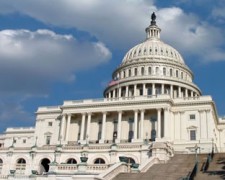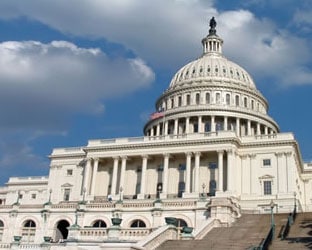 DISH Network’s Charlie Ergen complained on Capitol Hill about the dual income stream broadcasters are seeking via retransmission consent. Hearst Television exec David Barrett welcomed Ergen to the 21st Century.
DISH Network’s Charlie Ergen complained on Capitol Hill about the dual income stream broadcasters are seeking via retransmission consent. Hearst Television exec David Barrett welcomed Ergen to the 21st Century.
The exchange came under questioning from Communications Subcommittee member Doris Matsui (D-CA).
Ergen expressed his dismay that broadcasters are getting between 200%-400% more in retransmission income than when he started in the industry, and suggested that it was not in fact going to produce local programming. He said it was his understanding that much of it was now going to the big national networks.
Barrett responded that all program distributors were using a two-stream model these days – basic cable channels have been doing it for quite some time. He noted that a great number of broadcasters are offering at least 40 hours of weekly local news programming.
The issue was brought up again when Cliff Stearns (R-FL) was at the mic. Ergen complained that retransmission was an unfair fight because broadcasters are able to play one MPVD off another, and consumers are free to drop one for another.
Public Knowledge exec Gigi Sohn believed that there is no longer any need for must-carry, saying that if a station is good enough, MVPDs will want to carry it.
All panelists queried agreed that when they happen, content blackouts are not fair to consumers.
NCTA’s Michael Powell remarked that regulation should reflect present realities, not those of the past, but otherwise had very little to say on the topic during the question and answer portion of the hearing.
RBR-TVBR observation: It is an amazing thing: MVPDs continue to call broadcast programming must-have, but continue to want to avoid paying a fair price for it. They continue to cite meaningless percentages when a recent Kagan study has shown that in terms of actual dollars, little-viewed basic cable channels are getting far more cash than are broadcasters.
As far as blackouts go, sure, a broadcaster can just go ahead and pull programming as a negotiating ploy. But it is equally possible for an MVPD to refuse to bargain in good faith and leave the broadcaster with no viable alternative. It’s a two-way street that can only be executed by the broadcast side but can be precipitated by either side.
Most importantly from a regulatory standpoint, we have yet to hear the operator of an MVPD boast about their excellent coverage of the most recent local emergency. That’s because they do not and cannot provide that coverage.
For this reason alone, it is paramount that Congress and the FCC make sure local broadcasting remains a vital and financially-sound industry because doing so is very much in the public interest.





